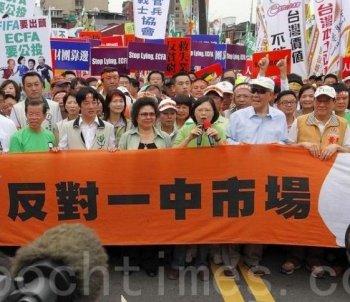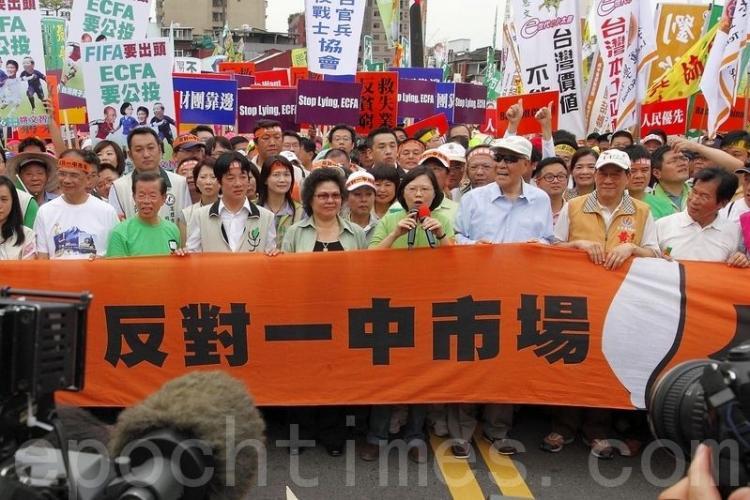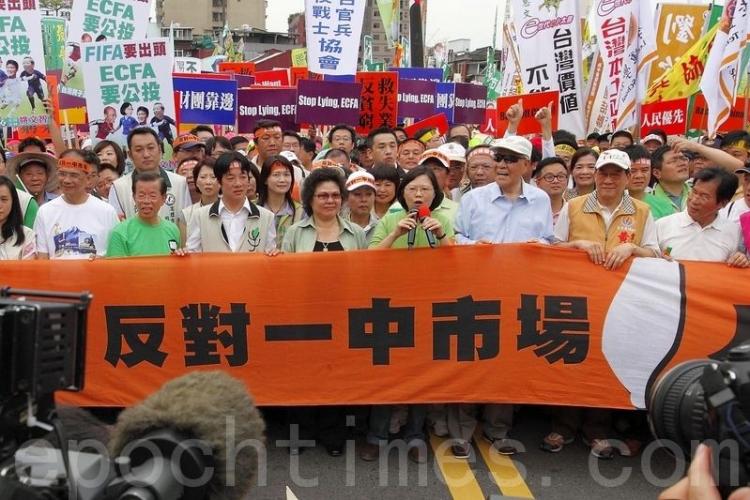[ Video Courtesy of NTDTV ]
TAIPEI—More than one hundred thousand opponents took to the streets on June 26 to protest the upcoming signing of the Economic Cooperation Framework Agreement (ECFA) with China. Officials say that the deal will cut tariffs on 539 products and open up service industries, giving a major boost of around $100 billion in annual two-way trade. But opponents believe the ECFA will sink Taiwan’s economy and democracy into a dire future, and eventually will help China to “unify” Taiwan.Critics say once the deal is in effect, cheap goods from China will flood the Taiwanese market and cause significant unemployment in Taiwan. The economic impact, people fear, will leave Taiwan too weak to defend against China’s political unification plans.
Eighty seven-year-old former Taiwanese president Lee Teng-hui spoke at the rally.
Lee said, “The ECFA is a sham of the Chinese communist regime. Under the disguise of benefiting Taiwan, the regime will steal Taiwan’s capital, talent, and technology. It can’t be more obvious that the regime aims at taking over Taiwan.”
Lee urged Taiwan’s people to protect Taiwan with democracy and make their voices heard in the year-end municipal elections.
In an earlier press conference, Lee quoted from Taiwan Disaster, authored by Yuan Hongbing, saying the Chinese communist regime has officially claimed that the nature of economic unification is for Taiwan to gain economic benefits and for China to realize political unification.




